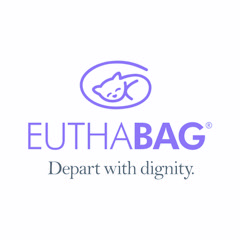By Eve Harrison, VMD, CVA
Edited by Kathleen Cooney, DVM
One of the most meaningful but challenging aspects of our work may be our involvement in the euthanasia of a beloved companion animal. My clients have shared over and over again how safe, supported, and special the in-home experience felt to them, as compared to in-clinic experiences.
If the idea of starting an in-home euthanasia (IHE) practice has been tugging at your heart-strings but you simply don’t know where to start…this blog is for you. Truly, this work is SO needed in our profession and there are many meaningful ways to start an IHE-only or IHE-inclusive practice. What I really want you to know is that you can do this!!
As a mentor, I’ve coached many veterinarians through starting house call practices. So many so, that I decided it was time to share a brief list to help you begin. While I go much more in-depth in my course, The House Call Vet Academy, this checklist will at least help you get started on your path. And with the Companion Animal Euthanasia Training Academy’s help, your mobile euthanasia skills are sure to grow too.
- Develop Your Business Skills
A common mistake vets make when starting their own IHE practice is spending too much money on supplies and services, and way too little investing in proper training on how to start and grow their business. In order to have a profitable practice that is sustainable over the long term, you’ll need to invest in learning how to build and grow your practice, as well as develop skills that set your practice apart. My personal rule of thumb is if you don’t have basic knowledge of how to grow a business sustainably or have the client base to support lots of equipment, don’t purchase it. - Start Planning Now
Don’t wait until you feel “ready” to start the planning process! Building a practice and getting the word out takes TIME. You won’t have a line of folks waiting to work with you the very day you decide to open your practice…unless you plan well in advance. And trust me, I know how uncomfortable it can feel getting started and filing paperwork before you’re ready to open up. But I’ve seen it repeatedly; those who start months or years in advance are the most successful. - Choose a Great Name
The next thing to do is decide on a practice name and obtain your DBA (Doing Business As) which allows you to legally engage in business under the name of your practice. Double check that your practice name is unique and is not one that already exists. It’s best to pick a name that expresses compassion while complying with relevant local regulations. - Learn Federal and State (Provincial) Requirements
Obtain a local business license, DEA license, and equivalent licensing and permitting in your state so you can legally open your practice. Contact your state board and check your state or provincial practice act for other specific requirements. Be sure to check local DEA laws, and start controlled substance logs. - Surround Yourself with Know-How
Find a CPA and/or bookkeeper to handle the accounting for your business (or you can use Quickbooks Online to do your own bookkeeping). You’ll also need to work with an attorney to help draft and customize consent paperwork. Speak with your CPA/attorney about the most appropriate business structure (which varies by state), potentially an EIN, as well as best tax selection for your practice. - Open Accounts
Open accounts for business checking, local pet crematory, & at least one vendor from which to purchase supplies & equipment. These accounts will develop to match your needs as your practice grows. So don’t worry- You are not locked into any decisions about your vendors. - Prioritize Sustainability
Last but definitely not least, make sure to take care of yourself emotionally & physically. Set boundaries, have a plan for self care, & please take care of your back! Lifting animals during aftercare can really add up if you are doing more than one in-home euthanasia per day. I recommend asking the family to help you bring their pet into your vehicle – I’ve found that most families find comfort in carrying a beloved companion animal themselves to rest in your car, and would prefer to do so. Some pet crematories are capable of transporting pets for you as well.
If you would like further assistance in starting/revamping your practice, I’m here for you! The House Call Vet Academy is a comprehensive, step-by-step program complete with mentorship & coaching so that you are never alone as you build your practice.
If you are in the CAETA master program, you have access to a discount code to my course as well – just click here!
I wish you the best of luck with your new business. Humans & animals everywhere need you… you got this!!!!
Warmly,
Eve Harrison, VMD, CVA
Dr. Eve Harrison is a full-time house call veterinarian in Los Angeles. She is the founder of the online CE course www.TheHouseCallVetAcademy.com & offers coaching to help veterinarians nourish not only their patients, but themselves… by helping them build profitable & sustainable house call practices of their own.





